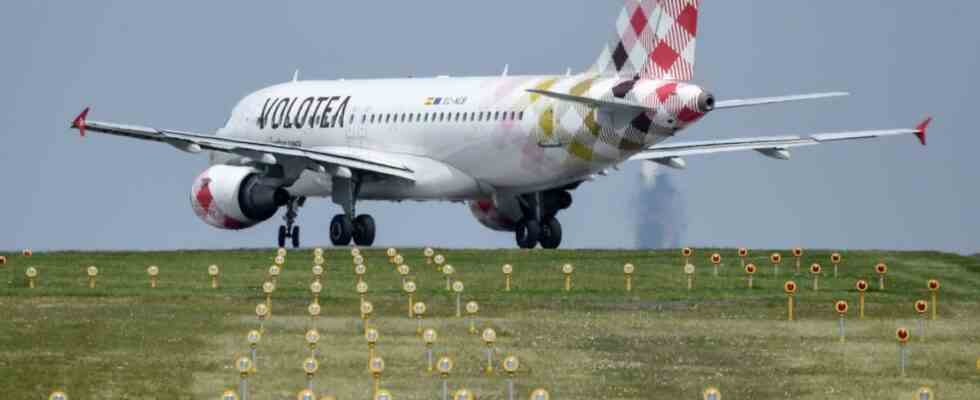He was eagerly awaited by the population. On April 8, the airport Nantes-Atlantic put in place, at the request of the State, a ban on night flights in order to fight against noise pollution. Clearly, landings and take-offs are not no longer allowed from midnight to 6 a.m., with exceptions theoretically limited to unforeseen circumstances “outside the control” of a company (weather, air navigation, health, etc.). A month later, what is the first assessment of this curfew not very widespread on the French scale?
According to associations of residents and local elected officials, who follow the traffic closely, at least forty thefts have been recorded between midnight and 6 a.m. for a month. The Spanish company Volotea alone would total 33 landings and 3 night take-offs during the last three weeks of April. The Directorate General of Civil Aviation (DGAC) recognizes the existence of these contentious flights, without however confirming the number, specifying that they are “operational problems”. “Each disputed flight is appraised and those that do not comply with the regulations will be subject to a procedure that may lead to sanctions,” she said.
Volotea is committed to “improving the situation”
The DGAC adds that the leaders of Volotea have “been summoned” and that they have been asked to “take corrective measures without delay so that the shortcomings are henceforth avoided”. For its part, Volotea, which was disrupted by a social movement by its staff (which does not justify an exception to the curfew according to the DGAC) in April, “commits to all residents of Nantes that the situation improves drastically and that in the coming weeks no more deviation from the curfew will be observed”.
Not enough to reassure Paolo Ferreira, president of the residents’ association Coceta. “We feared that this curfew was only a half measure because the text seemed sufficiently vague to leave possibilities for airlines to derogate from it. Unfortunately, our fear seems to be confirmed. And we are only talking about the month of April. What will happen in July-August when the traffic will be much higher? It will be even easier for companies to find excuses. We want a real curfew that makes sense. »
“We need real sanctions”
Sandra Imperiale, Mayor of Bouguenais, one of the two municipalities most exposed to air pollution in Nantes-Atlantique, points out that this first month of curfew has nevertheless made it possible to note “improvements in noise”. But she insists that the offending companies, notably Volotea, should not go unpunished. “The request for a curfew was a cry of warning from the inhabitants, from sometimes disillusioned inhabitants, recalls the elected official (various right). This measure was not easy to put in place. So now it has to be respected. I would like there to be real sanctions. Otherwise citizens will still have the feeling of a denial of democracy. And the companies that play the game will not be thanked. »
The curfew between midnight and 6 a.m. is accompanied by a ban on planes considered the noisiest from 10 p.m. Humanitarian, government and military flights have a permanent exception. In the event of a proven breach, the companies are liable to a fine of up to 40,000 euros. It is Airport Nuisance Control Authority (Acnusa) which will issue any sanctions. The very one who had issued an unfavorable opinion on the curfew project, not because she was opposed to it, but because she considered, like the residents, that the definition of the exceptions fixed by the text was “imprecise legally”, at the risk of the airlines granting themselves too many freedoms.
“We will remain extremely vigilant, warns Paolo Ferreira, the president of Coceta. We will wait for the sanctions, we will continue our counts. We’re not going to let them go. In 2019, just before the health crisis, around ten night flights were recorded per day on average.

